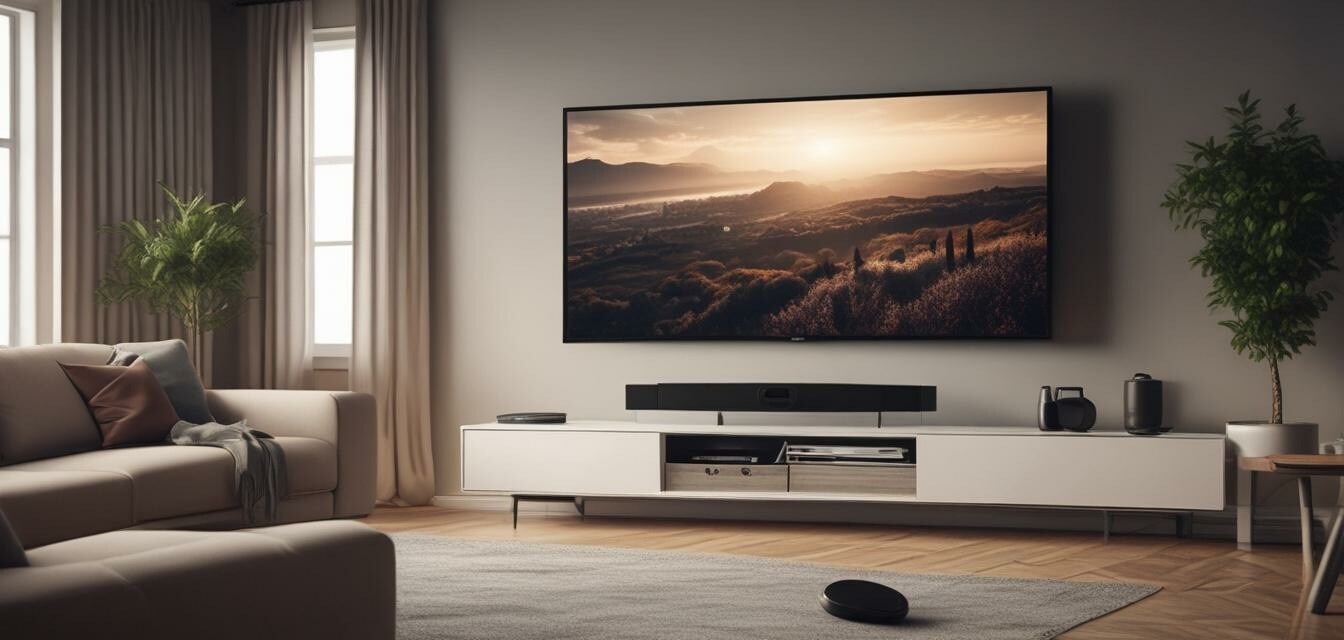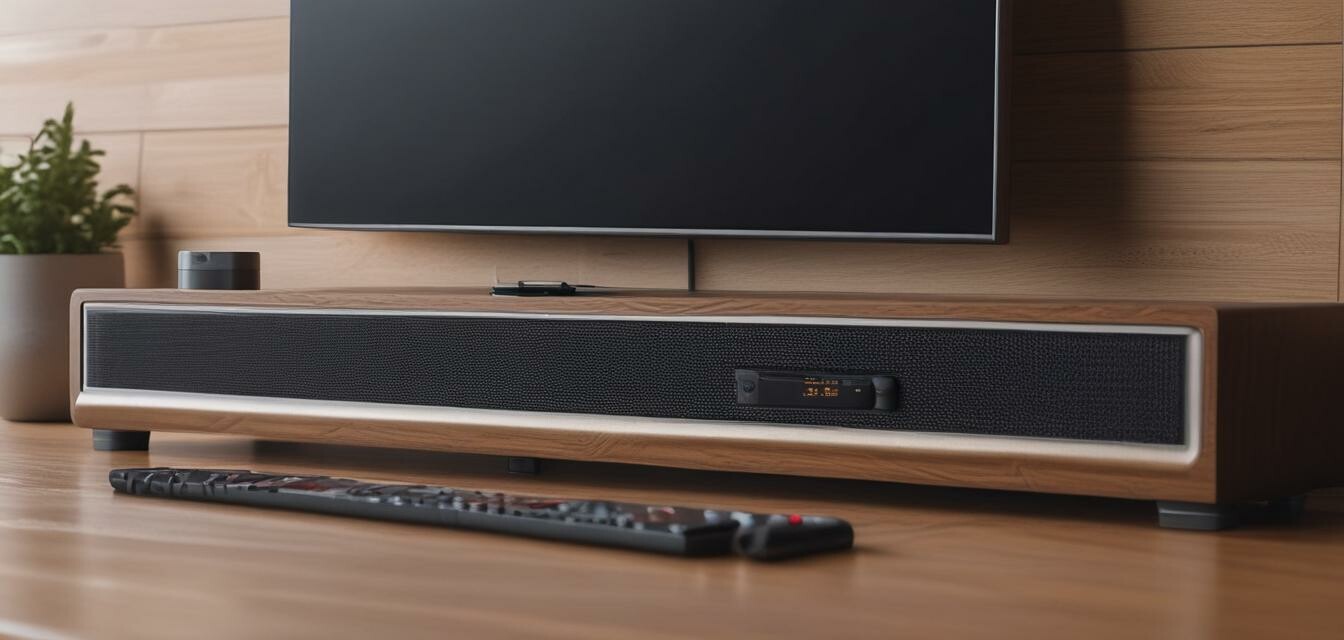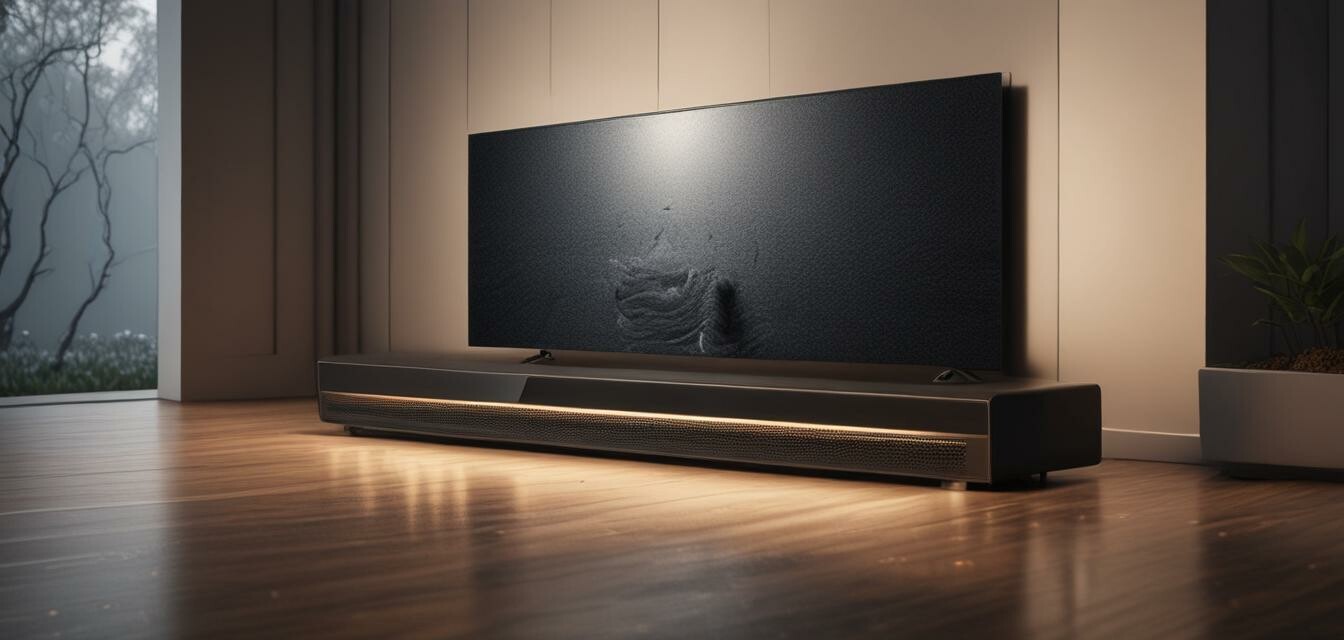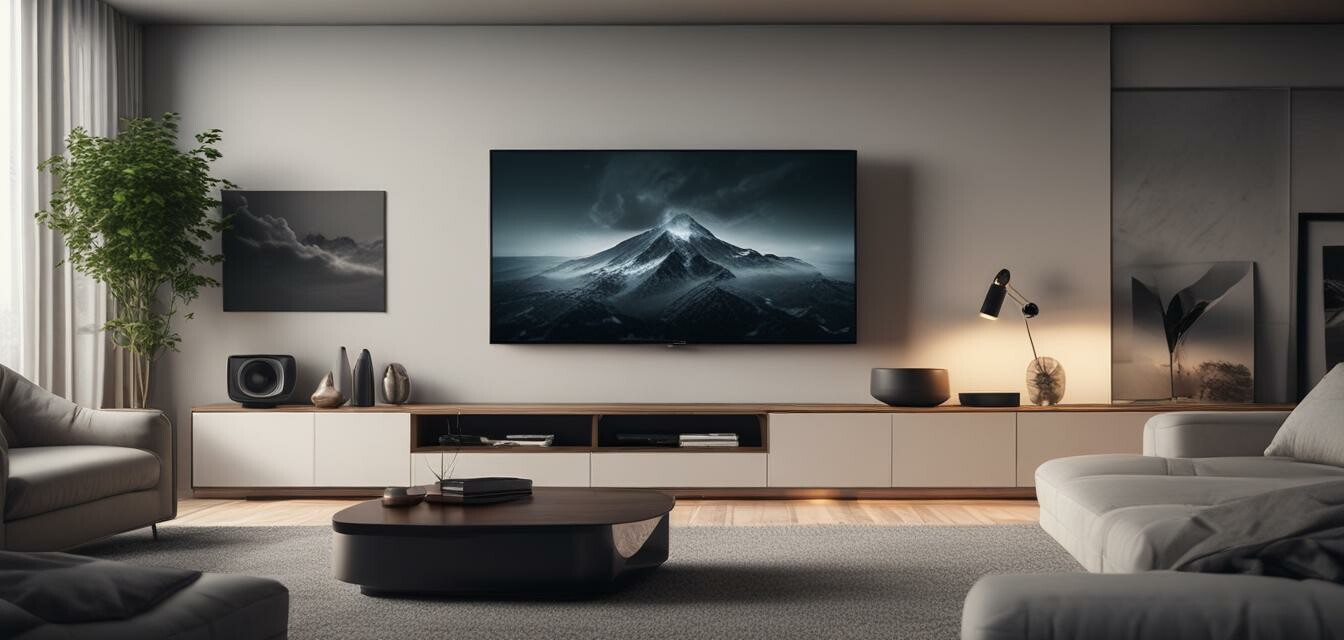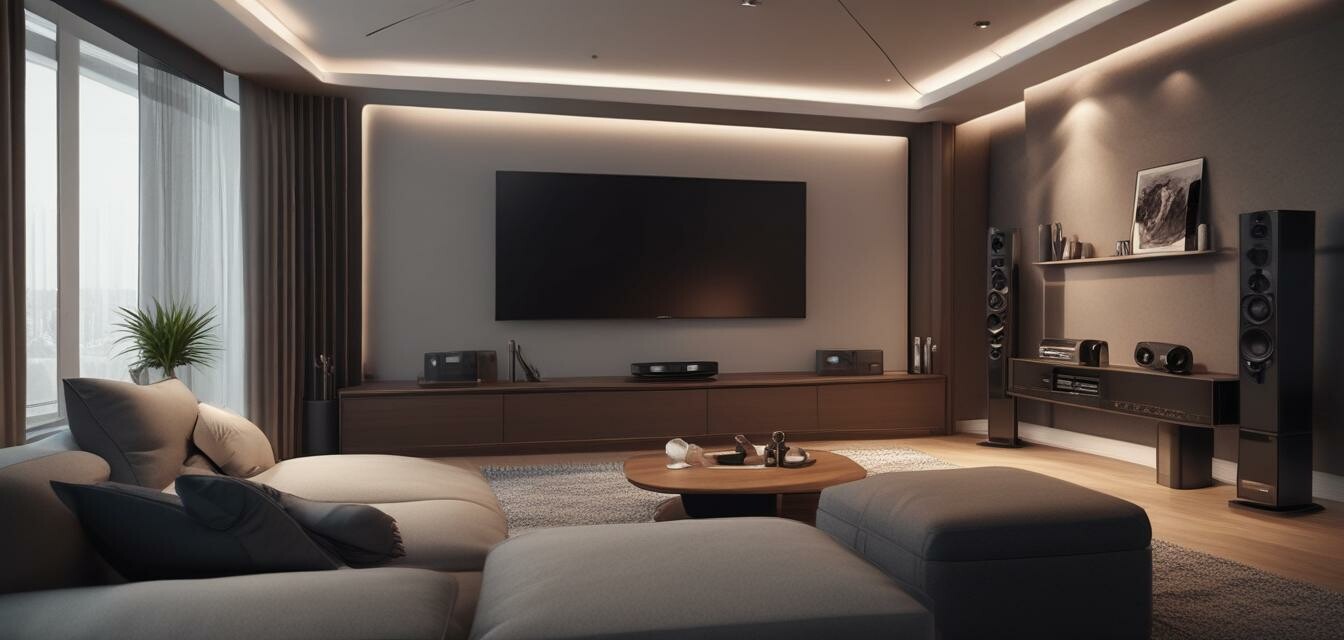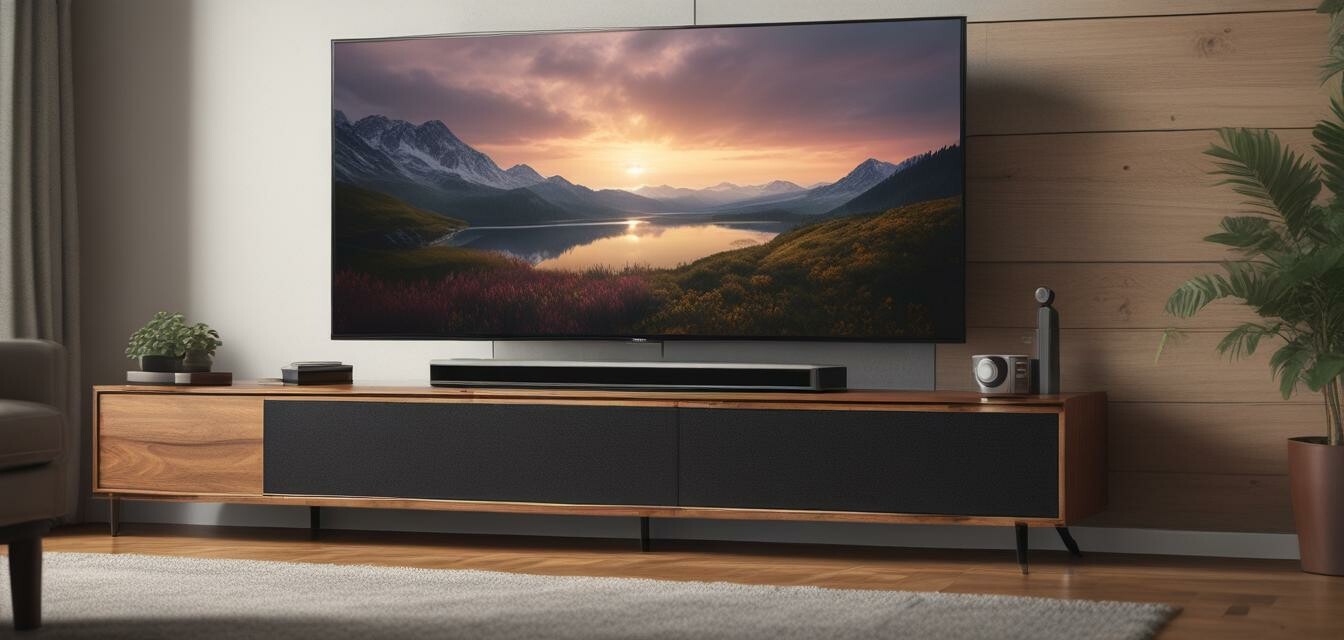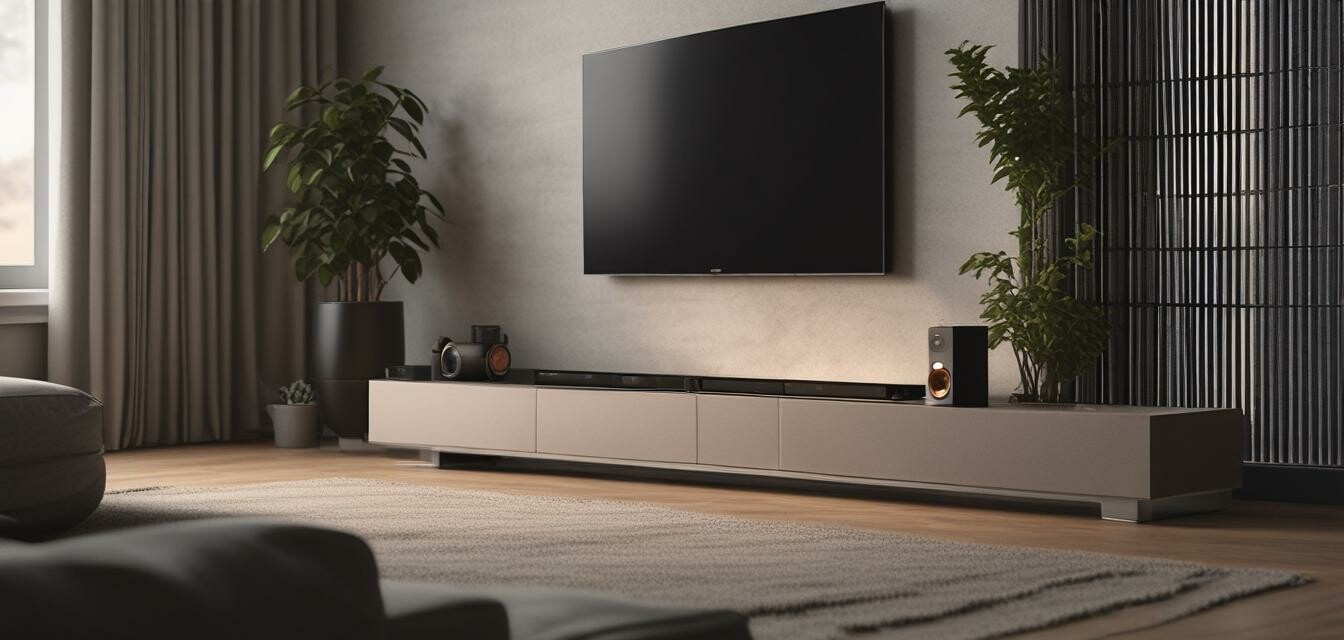
Soundbar Setup and Installation Guide
Key Takeaways
- Choosing the right soundbar location is crucial for sound optimization.
- Follow the specific connection types supported by your TV or audio source.
- Utilize sound settings on your TV for the best audio experience.
- Regular software updates can enhance soundbar performance.
Setting up a soundbar can seem daunting, but with the right guidance, you can enhance your home audio experience effectively. This guide covers everything from choosing the best location to connecting with various devices. Let's dive in!
Understanding Soundbar Types
When selecting a soundbar, understanding the types available is essential. Here’s a brief overview:
| Type | Description |
|---|---|
| Budget Soundbars | Affordable options that offer decent sound quality for everyday use. |
| Compact Soundbars | Space-saving options that don’t compromise on sound quality. |
| High-End Soundbars | Premium soundbars with advanced features for audiophiles. |
| Soundbars for Gaming | Tailored for gamers, these soundbars offer immersive sound experiences. |
| Soundbars with Subwoofers | Include external subwoofers for enhanced bass performance. |
| Wireless Soundbars | Eliminate cable clutter with Bluetooth or Wi-Fi connectivity. |
Choosing the Right Location for Your Soundbar
Placement of your soundbar can significantly impact audio performance. Here are some tips for optimal positioning:
- Place the soundbar directly below your TV for cohesive audio delivery.
- Ensure the soundbar is at ear level for the best sound clarity.
- Avoid placing objects in front of the soundbar to prevent audio blockage.
- If possible, mount it on the wall to save space and enhance aesthetics.
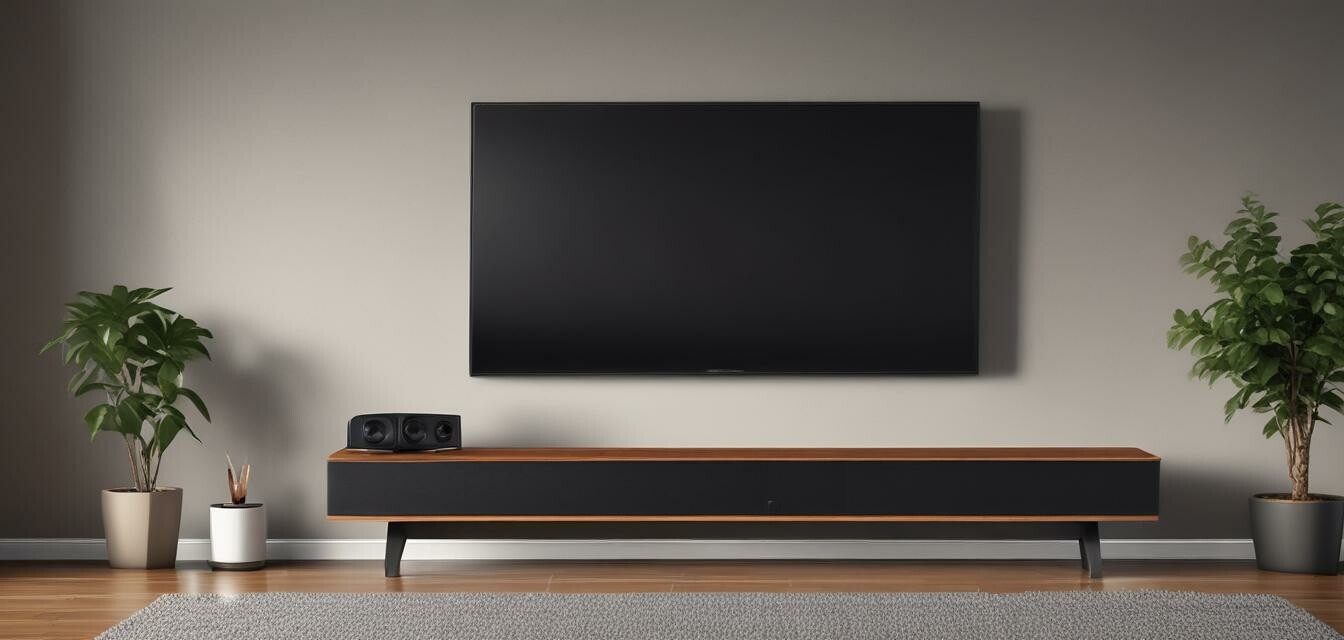
Connecting Your Soundbar
Proper connections are essential for sound quality and compatibility. Below are common connection methods:
| Connection Type | Description |
|---|---|
| HDMI ARC | Allows for high-quality audio with a single cable; the preferred method. |
| Optical Cable | Digital connection for high-quality sound; commonly used with TVs. |
| Bluetooth | Wireless option for connecting to Bluetooth-enabled devices. |
| Auxiliary (3.5mm) | Standard connection for various audio devices. |
Step-by-Step Connection Guide
- Power off your TV and soundbar.
- Connect your soundbar to the TV via your chosen method (HDMI ARC recommended).
- If using HDMI ARC, ensure your TV settings support this feature.
- Power on both devices and switch the soundbar to the correct input source.
- Adjust the volume for an optimal sound experience.
Tuning Your Soundbar Settings
Once physically connected, calibrating the audio settings can lead to improved performance. Consider these adjustments:
- Explore your TV's audio settings to select the optimal output mode.
- Test audio formats such as Dolby Atmos if supported.
- Adjust equalizer settings on your soundbar for personal preference.
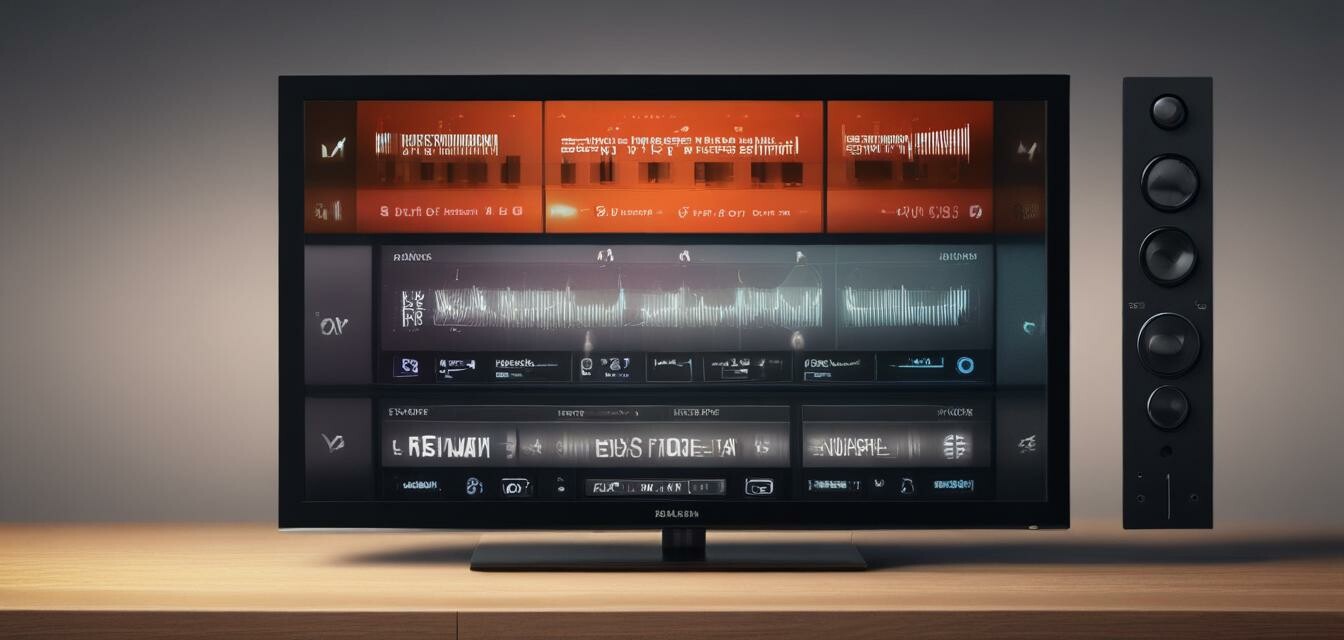
Regular Maintenance for Your Soundbar
To keep your soundbar performing at its best, consider the following maintenance practices:
- Update your soundbar's firmware regularly for improved features.
- Clean the soundbar with a microfiber cloth to prevent dust buildup.
- Check connections periodically to ensure everything is securely installed.
Common Troubleshooting Tips
If you encounter issues with your soundbar, try the following troubleshooting steps:
- Ensure all cables are securely connected.
- Switch your audio output source on your TV to the soundbar.
- Restart both the soundbar and TV to refresh connections.
- Refer to the user manual for specific troubleshooting related to your model.
Pros
- Improved sound quality compared to built-in TV speakers.
- Easy integration with various devices and setups.
- Space-saving designs available for different room sizes.
- Wireless options reduce cable clutter.
Cons
- Some models may be expensive.
- Potential latency issues with wireless connections.
- Setup complexity for advanced features may require additional time.
- Soundbars with subwoofers need extra space for placement.
Tips for Beginners
- Start with a budget soundbar to assess your needs.
- Explore compact options if you have limited space.
- Consider soundbars with Wi-Fi for fewer cables and better connectivity.
- Always keep user manuals handy for troubleshooting and adjustments.
Conclusion
Setting up your soundbar doesn't have to be complicated. By choosing the right location, understanding connectivity options, tuning your sound settings, and performing regular maintenance, you can enjoy an optimal audio experience. For more guidance on soundbars, feel free to explore our additional resources on budget soundbars, compact soundbars, high-end soundbars, soundbars for gaming, and soundbars with subwoofers.
